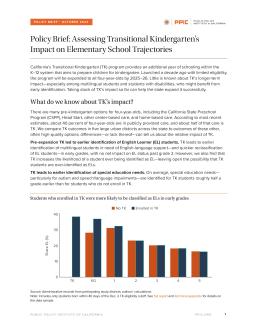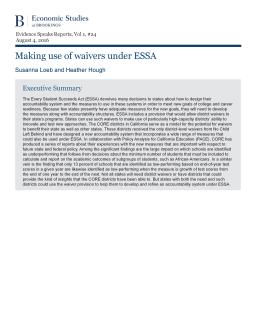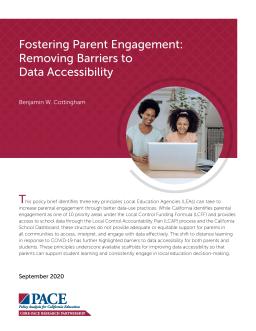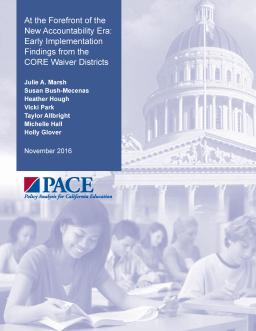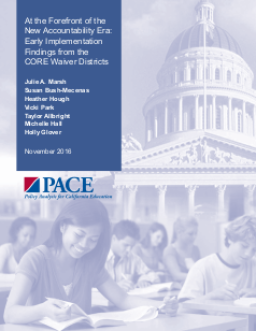Summary
Summary
Summary
Parental engagement is essential to improve academic outcomes for all students, particularly low-income, Black, and Latinx students. Distance learning has intensified the need for parental support, but state policies and tools for engagement are inadequate. Local Educational Agencies can remove barriers to data access and support parent engagement by following three key principles and taking related actions.
Summary
Summary
Summary
California and the US are undergoing a cultural shift in school accountability policies towards locally-determined measures of school performance. Lessons can be learned from the CORE districts, which developed an innovative accountability system, emphasizing support over sanctions, and utilizing multiple measures of school quality. The CORE districts' measurement system and collaboration hold promise for improving local systems, but efforts to build capacity remain a work in progress.
